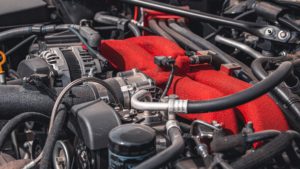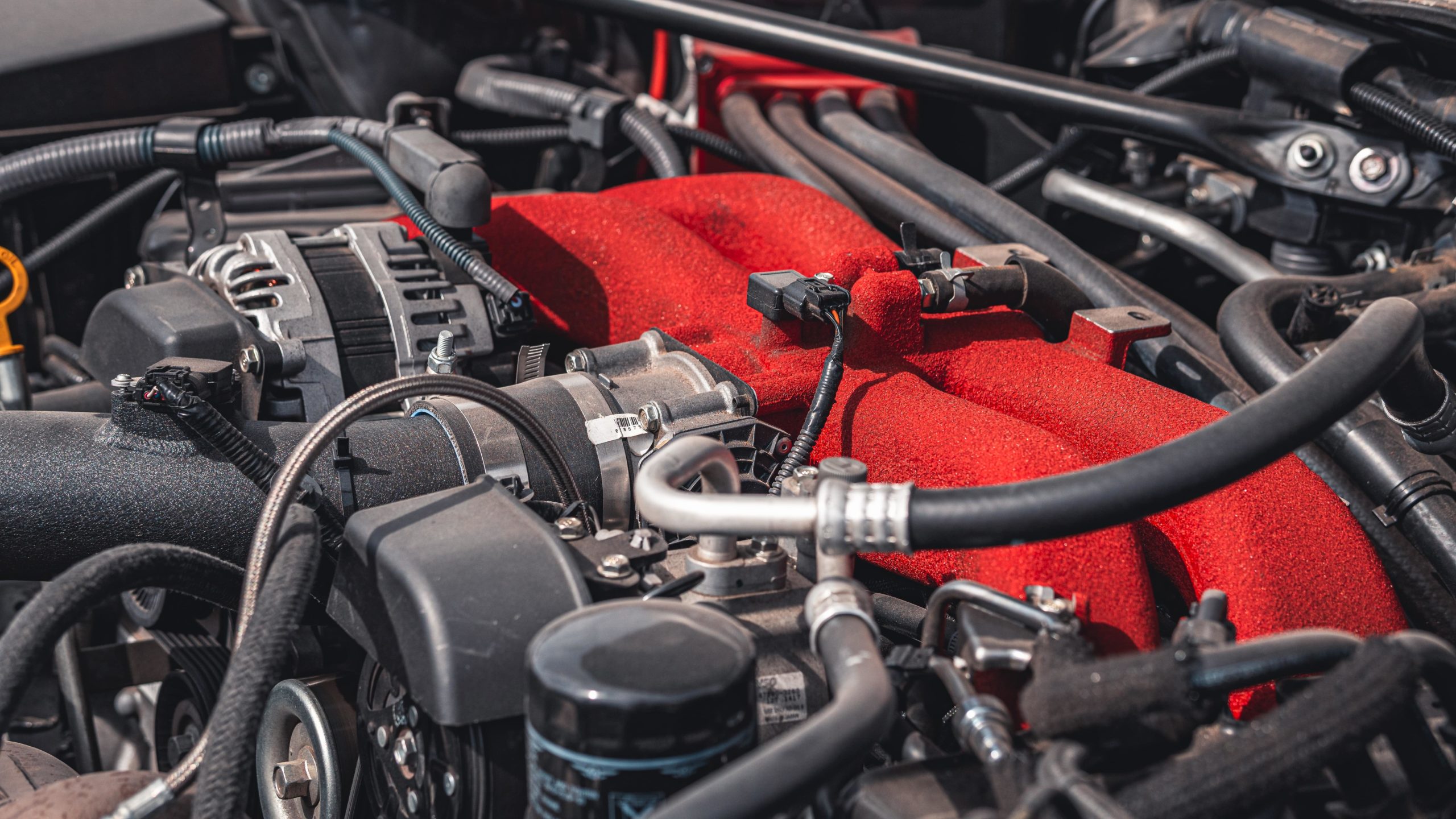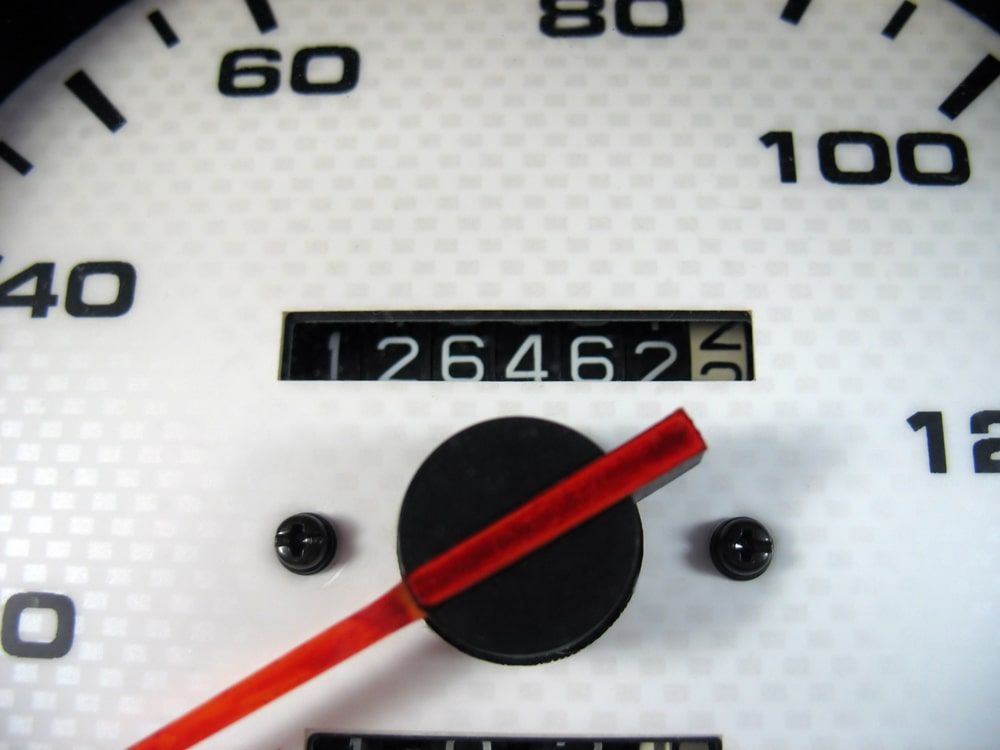In This Article
Key Points:
- New cars include powertrain warranties that last anywhere from 4 years/50,000 miles to 10 years/100,000 miles.
- Serious powertrain breakdowns are rare but they can be expensive to repair.
- You can get extended powertrain warranties from automakers and vehicle service contracts from third-party providers.
If your car suddenly refuses to accelerate and instead shuts itself off, there’s likely an issue with the powertrain. This is a group of components that is responsible for getting you from point A to point B. A powertrain warranty covers systems that can be expensive to repair like the engine, transmission, and drive axle.
All cars come with powertrain warranties of varying lengths, and they don’t last forever. Below, we’ll show you what’s usually covered under a powertrain warranty and how to extend vehicle protection after the factory warranty is up.
Our Top Pick
After reviewing 20 companies, we’ve determined that Endurance is our preferred option for extended car warranties.
- Unlimited Miles for Cars Under 20 Years
- Maintenance Coverage Available
- Salvage or Rebuilt Cars Are Covered
- 24/7 Roadside Assistance
- Direct Administrator of Claims
What Does a Powertrain Warranty Cover?
| Powertrain Component | Covered Component Examples |
|---|---|
| Engine | Internally lubricated parts, cylinder block, cylinder heads, engine mounts, timing chain, oil pump, water pump, intake and exhaust manifolds, harmonic balancer, turbocharger |
| Transmission | Transmission case, internally lubricated parts, torque converter, electronic shift control unit, transmission mounts |
| Transfer case | Transfer case housing and internally lubricated parts |
| Drive axle | 2WD and 4WD drive axles, drive shafts, universal joints, axle bearings, locking hubs, constant velocity joints, 4WD actuator, drive axle case with internally lubricated parts |
What Is a Powertrain?
Is a Powertrain Expensive To Repair?
Powertrain components usually last a long time. The bad news is they can be expensive to replace. According to RepairPal, a CV axle replacement can cost between $1,086 and $1,234 while a transmission replacement can cost between $5,584 and $5,789.
Powertrain vs. Drivetrain
Common Exclusions in Powertrain Warranties
Powertrain warranties can exclude certain types of damage or situations from coverage. Here are a few examples:
- Damage from misuse or abuse
- Damage from lack of maintenance
- Damage from aftermarket modifications
- Regular maintenance services and parts like oil changes, spark plugs, filters, etc.
- Wear-and-tear parts like belts and hoses
- Damage from external factors like accidents
Of course, powertrain warranties don’t cover systems outside the powertrain, like air conditioning, electrical, high-tech, or fuel systems.
Electric and Hybrid Powertrain Warranty Coverage
Electric vehicles have transmissions and drive axles that work a bit differently than those in internal combustion engine vehicles. They’re still covered under a standard powertrain warranty, though. Hybrids have engines with standard powertrain coverage.
Some parts receive longer coverage on a hybrid or EV. They’re usually covered under a separate warranty like a Hybrid Vehicle System Warranty or Electric Component Warranty. This coverage will vary whether the car is a mild hybrid, full hybrid, plug-in hybrid (PHEV), battery electric vehicle (BEV), or fuel cell vehicle (FCEV).
For example, Toyota’s hybrid warranty covers the following for 8 years/100,000 miles:
- Battery control module
- Hybrid control module
- Inverter with converter
Ford’s fully-electric Mustang Mach-E has the following coverage:
- High-voltage battery assembly
- Bussed Electrical Center (BEC)
- Battery Energy Control Module (BECM)
- On-board charger
- Inverter System Controller (ISC)
- DC/DC converter
- eDrive System
Hybrid or EV batteries are covered for at least 8 years/80,000 miles, though some companies offer more coverage. The battery may be replaced if the capacity drops below a certain threshold in the warranty period. For example, Tesla’s warranty covers a minimum of 70% battery capacity retention during the warranty period.
Powertrain vs. Bumper-to-Bumper Warranties
| Powertrain Warranty | Bumper-To-Bumper Warranty | |
|---|---|---|
| What’s covered | Engine, transmission, transfer case, drive axle | Powertrain parts plus electrical, steering, brakes, high-tech, climate control, suspension, cooling, fuel, and more |
| How coverage works | Only specific parts written on the contract are covered (inclusionary) | Any component except for specific exclusions is covered (exclusionary) |
How Long Do Powertrain Warranties Last?
New vehicle powertrain warranties last between 4 years/50,000 miles and 10 years/100,000 miles. Genesis, Hyundai, Kia, and Mitsubishi offer the longest powertrain warranties of 10 years/100,000 miles. However, secondary buyers get a shortened powertrain warranty of 5 years/60,000 miles with these brands.
Powertrain Warranties from Automakers: Longest to Shortest
| Manufacturer | Powertrain Warranty Duration |
|---|---|
| Genesis | 10 years/100,000 miles |
| Hyundai | 10 years/100,000 miles |
| Kia | 10 years/100,000 miles |
| Mitsubishi | 10 years/100,000 miles |
| Tesla | 8 years/mileage varies by model |
| Acura | 6 years/70,000 miles |
| Cadillac | 6 years/70,000 miles |
| Infiniti | 6 years/70,000 miles |
| Lexus | 6 years/70,000 miles |
| Lincoln | 6 years/70,000 miles |
| Buick | 5 years/60,000 miles |
| Chevrolet | 5 years/60,000 miles |
| Dodge | 5 years/60,000 miles |
| Ford | 5 years/60,000 miles |
| GMC | 5 years/60,000 miles |
| Honda | 5 years/60,000 miles |
| Jeep | 5 years/60,000 miles |
| Mazda | 5 years/60,000 miles |
| Nissan | 5 years/60,000 miles |
| Ram | 5 years/60,000 miles |
| Subaru | 5 years/60,000 miles |
| Toyota | 5 years/60,000 miles |
| Audi | 4 years/50,000 miles |
| BMW | 4 years/50,000 miles |
| Land Rover | 4 years/50,000 miles |
| Mercedes-Benz | 4 years/50,000 miles |
| Mini | 4 years/50,000 miles |
| Porsche | 4 years/50,000 miles |
| Volkswagen | 4 years/50,000 miles |
| Volvo | 4 years/50,000 miles |
Extended Powertrain Warranties
You can find extended powertrain warranties from manufacturers and third-party vehicle service contracts from companies like Endurance or Toco. Extended powertrain warranties usually cover similar components in the engine, transmission, and drive axle as manufacturer warranties. The big difference is you pay for an extended warranty separately, while a manufacturer warranty comes on your vehicle for free.
Extended powertrain warranties often include extra benefits like roadside assistance, trip interruption, and rental car coverage.
Best Extended Powertrain Vehicle Service Contracts
| Company | Powertrain Plans |
|---|---|
| Endurance | Secure Plus |
| Toco | Green Level |
| Everything Breaks | Standard or Enhanced Powertrain |
| autopom! | Powertrain Plus |
| Olive | Powertrain |
How Much Does an Extended Powertrain Warranty Cost?
Looking at powertrain warranty quotes from the top five providers, we found the average plan costs about $111 per month. An extended powertrain warranty costs about $3,756 in total on average.
Most providers offer full refunds within 30 days. After that, you can get a prorated refund based on time and claims paid. You can also usually transfer a third-party warranty to a secondary owner if you sell the car.
How To File a Powertrain Warranty Claim
Here’s what to do if your check engine light comes on and you suspect an issue with the engine, drive axle, or transmission:
- Limit driving to avoid further damage
- Locate a dealership if you have a manufacturer’s powertrain warranty
- If you have a third-party plan, call the administrator on your contract to see where to drive or tow the car
- Take your car to the repair shop and have them contact your warranty provider
- The shop will diagnose the issue and seek warranty approval
- If the repair is covered, you’ll pay a deductible to the repair shop
Note that most manufacturer powertrain warranties require you to go to a dealership for repairs. Third-party plans usually allow you to visit any licensed facility for repair coverage.
Tips for Maintaining Warranty Validity
Only a couple of things can void your entire warranty: tampering with the odometer and totaling the vehicle. However, an automaker or warranty provider may deny a specific repair if you haven’t kept up on maintenance. For example, if you fail to get oil changes and the engine develops issues, an engine repair claim could be denied. This wouldn’t necessarily affect the transmission or drive axle coverage.
To minimize the possibility of a claim being denied,
- Follow all recommended maintenance for your vehicle
- Keep maintenance documentation with the vehicle
- Remember to record any maintenance work you do yourself
Always Read the Fine Print
If you’re shopping for an extended powertrain warranty, always read the fine print. Don’t just choose whatever plan the dealer offers without reading the terms and conditions.
Some used car dealers can offer plans that aren’t worth it or have too many exclusions. For example, a powertrain extended warranty might require you to visit that exact dealership or a certain chain of repair shops for coverage. This makes it harder to get repairs, especially if you move out of the area.
Do You Need an Extended Powertrain Warranty?
Our Top Pick
After reviewing 20 companies, we’ve determined that Endurance is our preferred option for extended car warranties.
- Unlimited Miles for Cars Under 20 Years
- Maintenance Coverage Available
- Salvage or Rebuilt Cars Are Covered
- 24/7 Roadside Assistance
- Direct Administrator of Claims
Powertrain Warranty Coverage FAQs
Advertiser Disclosure: Consumer Review Center might earn compensation from the companies featured on this page. This compensation could affect the placement, order, and visibility of products, but it does not affect the recommendations made by the editorial team. Not every company, product, or offer has been reviewed.
Related Resources

Is a Toyota Car Warranty Extension Worth It?
In This Article Advertiser DisclosureYou can extend your Toyota car warranty with a Vehicle Service Agreement to cover breakdowns, but does your long-lasting Toyota need

Is a BMW Car Warranty Extension Worth It?
A Platinum BMW warranty extension covers most major systems up to 7 years/100,000 miles while Gold and Powertrain Plus plans cover fewer parts.

Powertrain Warranty Coverage Guide
A powertrain warranty covers vital systems that move your car forward, including the engine, transmission, transfer case, and drive axle.










